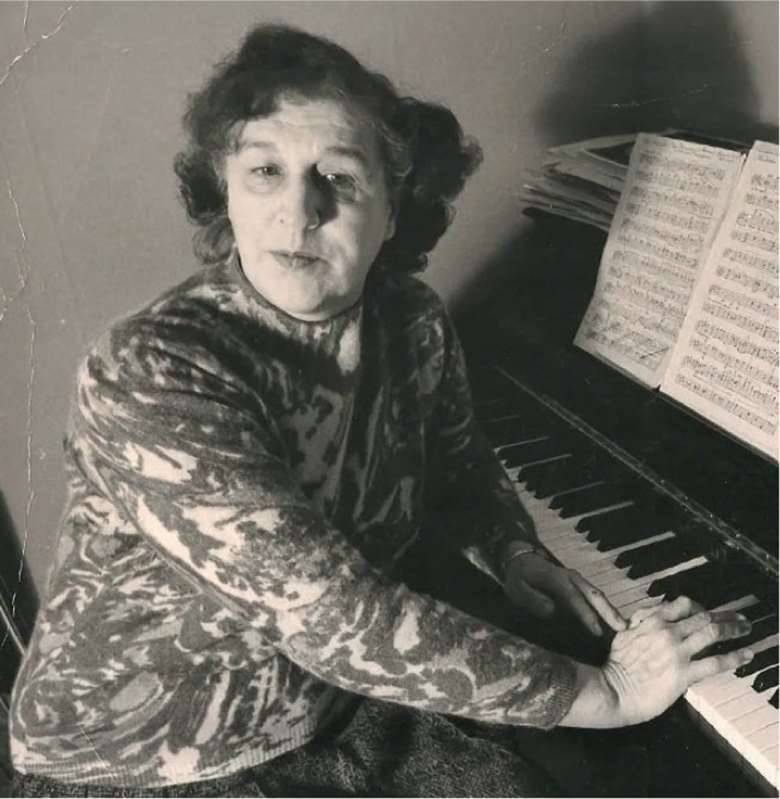Phantoms of the piano
Benjamin Ivry
Wednesday, November 2, 2022
How spooky is the piano? Benjamin Ivry ponders a new book that suggests the instrument invites paranormal experiences

STANLEY DEVON
A new book, Music and the Paranormal: An Encyclopedic Dictionary (McFarland) asserts that the piano has been a ‘favourite source of alleged paranormal music’ since the 18th century. Yet the author, Melvyn Willin, admits that the English amateur pianist and occultist Aleister Crowley believed that the violin was a far spookier instrument, with diabolic associations. Perhaps in the 19th century, the piano acquired a permanently un-mystical domestic aura. If so, mediums delighted in overturning such staid associations by offering seances at which keyboards appeared to play themselves or move independently.
As Willin notes, the great and the good of past eras were enlisted to witness such shows. Some, including US President Abraham Lincoln, were reportedly intrigued. According to Lincoln historian Jay Monaghan, spiritualist sources repeatedly claim that Honest Abe attended a White House seance at which a ‘piano moved up and down on the floor, presumably by spirit influence,’ and he ‘climbed upon the piano in an effort to hold it down’.
To be sure, mysteries are associated with the piano, whether or not one wishes to ascribe paranormal significance to them
In grandiose settings like castles and palaces, ghostly drumbeats, bagpipes or bells were commoner, but in modest dwellings the sound of a piano often jarred residents.
Expanding the topic to paranormal keyboard experiences in public houses, Wallin's research was impeded when his written inquiries to landlords across England about unexplained musical apparitions elicited only one reply. In 1997, the general manager of the Angel Inn, Lymington, Hampshire, explained that no paranormal activity was occurring at present, although ‘two geriatric spinsters claim to have borne witness to a piano playing itself a merry little ditty in the style of Noël Coward’.
Like those spinsters, anyone who wishes to believe in paranormal pianos does so because that is their desire or conviction. When the pianist and spirit medium Rosemary Brown (1916-2001) claimed that Liszt, Chopin, Beethoven and other composers had posthumously dictated keyboard works to her, some people believed her, scarcely noting that oddly, only Romantic musicians favoured Brown with their attention. It was tacitly accepted that no one would want to hear new works by avant-garde composers, even from beyond the grave. All the piano composers involved had obligingly learned English to communicate with her in that language.
The British pianist John Lill, whose interest in matters spiritual has been expressed in many interviews, declared at one public event that Brown's effusions must be authentic because Beethoven personally told him so. Pianists Howard Shelley, Peter Katin, Hephzibah Menuhin and Richard Rodney Bennett reportedly took Brown seriously, even when listeners observed that her pale echoes of the original lacked the sustained imaginative control of genuine masterworks. The pianist Denis Matthews dismissed her output as ‘charming pastiches’. The musicologist Barry Cooper was similarly unimpressed. Nor was the pianist and conductor André Previn seduced, deeming Brown's inspirations ‘third, fourth, or fifth-rate Liszt’.
Although likely the most publicised pianistic medium, Brown was by no means the only one. Jesse Shepard (born Francis Grierson in Birkenhead, UK) claimed to be guided by the spirit of Berlioz, who empowered him to play melodies while keeping the piano lid firmly shut. To nitpickers who squawked that Berlioz had never learned how to play the piano during his lifetime, true believers loftily explained that in the afterlife the French composer luxuriated in sufficient time to master the instrument. Jesse Shepard settled all such quibbles by dying at the keyboard during his own benefit recital in California in 1927.
To be sure, mysteries are associated with the piano, whether or not one wishes to ascribe paranormal significance to them. Suddenly being able to technically master a previously inaccessible work is alluded to in some of these accounts. Instead of this seemingly instant ability being by dint of sheer graft, it is attributed to supernatural intervention. Another recurrent theme, of pianos floating in the air, as claimed by Emma Hardinge Britten, a 19th-century medium, upends the evident weight of the instrument to demonstrate ghostly powers.
Such reveries are certainly diverting but all appear to be motivated by a will to rationalise what remains inexplicable about the art of piano-playing. After all, believing otherwise might force us to confront seriously what rattles around the heads of pianists during their endless solitary hours spent practising.






